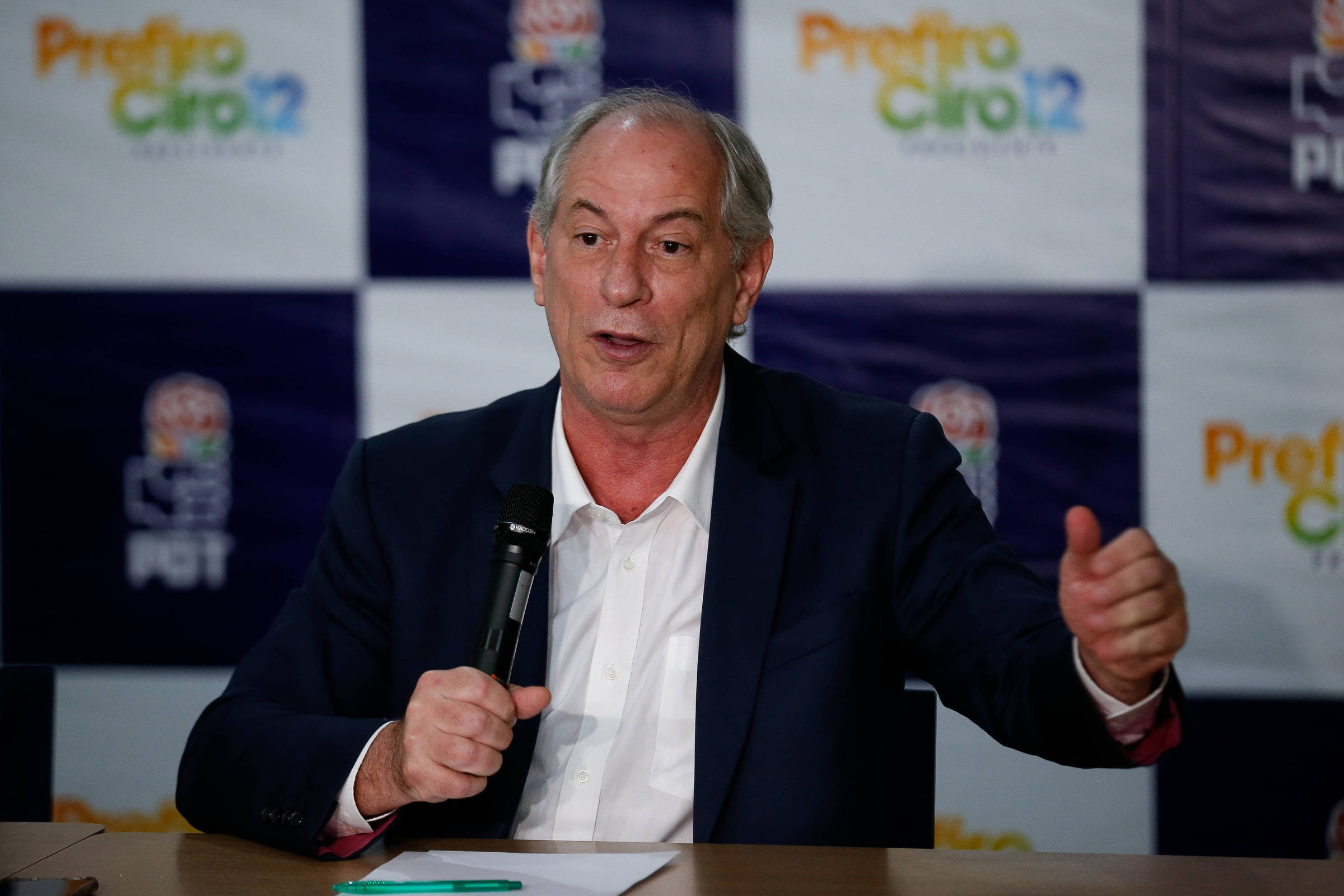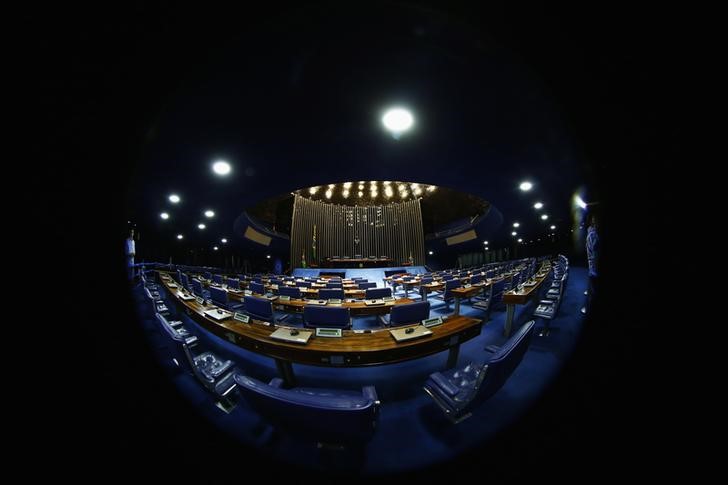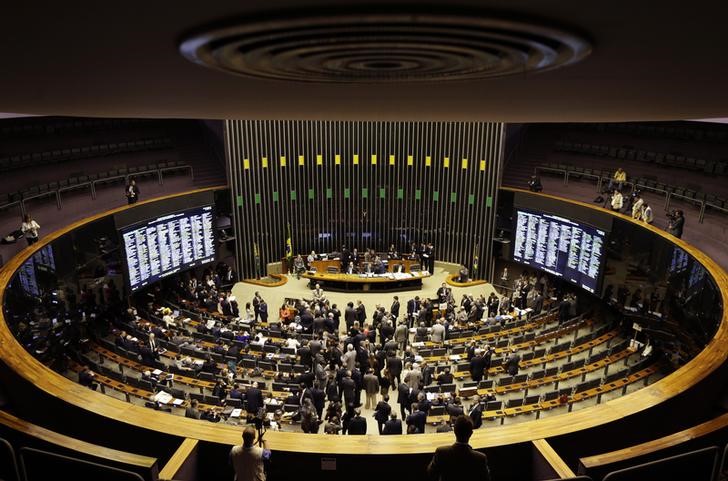It’s the end of an era. Rep. Nancy Pelosi, D-Calif., who counts among her legacies in Congress successfully undercutting the push for Medicare for All, announced last week that she is retiring from Congress. The two-time former speaker of the House made her announcement after Democrats made remarkable gains in nationwide elections, campaigning on affordability and standing up to the Trump administration.
“We are in this era where we need new ideas, we need new leaders, we need people who are going to push the party in a new direction,” says Saikat Chakrabarti, who is running to replace Pelosi and represent San Francisco in Congress, making economic inequality and corporate power the focal point of his politics. This week on The Intercept Briefing, host Akela Lacy speaks to Chakrabarti, the co-founder of the progressive outfit Justice Democrats who helped run the primary campaign of one of its first candidates, Rep. Alexandria Ocasio-Cortez, becoming her first chief of staff.
Answering Lacy’s question as to how he’ll get it done, Chakrabarti says, “In the 1930s, we had a really powerful, far right in this country. We were actually seeing Nazi rallies in Madison Square Garden, it was filling the stadium. And the way we defeated that was FDR came in with the New Deal movement. He built this whole new economy and a whole new society that improved people’s lives so dramatically, it just killed this idea that you need an authoritarian to do it for you.” FDR “wasn’t advocating for going back to a pre-Great Depression era. He was advocating for something new. So that’s the way we get it done, and I see some movement towards that.”
Chakrabarti has been openly calling for House Minority Leader Hakeem Jeffries, D-N.Y., to be primaried and tells The Intercept that Senate Minority Leader Chuck Schumer should be too, following the end of the longest government shutdown in U.S. history, after eight Democratic senators — none who are up for reelection — joined forces with Republicans to pass a spending package.
“My goal, honestly, is to replace a huge part of the Democrat establishment,” says Chakrabarti. “I’m calling for primaries all across the country. … I think we actually have to get in there and be in a position of power where we can do all that, so it’s not going to be this constant compromising with the establishment, trying to figure out how we can push.” He adds, “I tried the pushing strategy — that’s what Justice Democrats was: We were trying to elect people to try to push the Democratic Party to do the right thing. It’s not going to work. We have to replace them.”
Listen to the full conversation of The Intercept Briefing on Apple Podcasts, Spotify, or wherever you listen.
Transcript
Akela Lacy: Welcome to The Intercept Briefing, I’m Akela Lacy.
It’s the end of an era.
Nancy Pelosi: I will not be seeking reelection to Congress.
AL: U.S. Representative Nancy Pelosi, who counts among her legacies in Congress successfully undercutting the push for Medicare for All, announced last week that she’s retiring from Congress. The Democrat and two-time former speaker of the House represents one of the country’s most liberal districts: San Francisco, California. And she has done so for nearly 40 years.
Pelosi made her announcement after Democrats made remarkable gains in nationwide elections. One takeaway, as we discussed in last week’s episode, is that voters want leaders who will fight for affordability and stand up to the Trump administration.
The race to replace Pelosi began before she publicly shared that she would not run for reelection. And although the California primary is seven months away, it’s already looking like a crowded and competitive field.
Saikat Chakrabarti was the first to jump into the race for Pelosi’s seat, setting up a challenge from her left.
Chakrabarti co-founded the progressive outfit Justice Democrats and helped run the first campaign and office of one of its first candidates: Rep. Alexandria Ocasio-Cortez.
He’s running on a campaign promising to push for universal health care and child care, enact a stock trading ban for members of Congress, cost-of-living issues, and to “stop funding the genocide in Gaza.”
He’s also criticized some of his colleagues in the progressive movement. So how is he positioning himself amid a wave of other primary challengers? And how would he actually fulfill his campaign promises? Saikat Chakrabarti joins me now. Saikat, welcome to the Intercept Briefing.
Saikat Chakrabarti: Hey, thanks for having me.
AL: Saikat, you’ve been described as a bit of a contradiction. You’re independently wealthy; you’re a founding engineer at the payment processing company Stripe; and Business Insider has said, you may be wealthier than Nancy Pelosi, one of the wealthiest members of Congress.
You’ve also made economic inequality and corporate power the focal point of your politics. You ran Alexandria Ocasio-Cortez’s campaign, became her first chief of staff, and co-founded Justice Democrats.
Most tech millionaires aren’t necessarily also progressive anti-establishment politicians. How do those two identities fit together for you?
Most tech millionaires aren’t necessarily also progressive anti-establishment politicians. How do those two identities fit together for you?
SC: I’d say most tech millionaires are really working toward their own demise as well in the long run. Because, I mean, look, I’ll give you my whole background. I grew up middle class in Texas. I grew up going to public schools. My parents actually grew up fairly poor. My parents are from India. They immigrated here in the 1970s, and my dad was a victim of partition, which was a catastrophic event — we basically split up India along religious lines after the Indian Revolution. And so his family were refugees that had to flee overnight from Bangladesh over to India. And so I grew up with the stories of their struggles. My dad grew up with a family of 12 in a one-bedroom apartment, often didn’t know where his next meal would be coming from.
“The way our economy is set up and has been set for so long is a lottery.”
I’d say my values really come from that — in two ways. Like one, it’s both these values that are shaped by how hard people who are totally capable have to actually work when they get a bad plate handed to them in life. But also just the way our economy is set up and has been set for so long is a lottery. Because at the end of the day, my dad struggled, but he won a lottery ticket; he got a visa to come to America. And I go back to Calcutta and I meet his friends and his family who all had it just as hard or just as hard-working, just as capable people who never made it out.
And so I joined the tech industry back in 2007, or 2009, actually, after college. And it was a time when tech really was being pitched as a solution to a lot of the big problems in the world. I was a completely apolitical person, and I bought it. I did think I was going in to try to solve some big issues. At the time like Muhammad Yunus was doing microfinance to alleviate poverty, yada, yada. And living in San Francisco and seeing unhoused people on the streets while I’m going to my tech job — it just gave me the feeling that maybe I’m actually not solving the problems I really want to work on.
So it sounds really cheesy now, but I quit the tech industry and I wrote a list. I was like, I want to work on inequality, poverty, and climate change. Again, I was not political at all — I was looking at mainly working in nonprofits. And that was around the time Bernie Sanders started running for president. I didn’t know if he had all the answers, but he was talking about those things in a very compelling way.
And so I joined that, and I ended up working on the Bernie campaign. I started a group — Justice Democrats — to recruit people to run on progressive values all around the country. And that’s how I ended up recruiting AOC to run, and ran her campaign, and ended up as her chief of staff.
“I worked hard, but I did not work harder than a teacher or a nurse or the people cleaning our offices did every single day. I just won the startup lottery.”
But I really believe at the end of the day, like a fundamental thing — and this is why I don’t think it is a contradiction — I experienced that lottery economy, that the startup economy really is in San Francisco. It’s this system where you can just hit it big if you just happen to be in the right place at the right time.
That’s what happened to me. And like I worked hard, but I did not work harder than a teacher or a nurse or the people cleaning our offices did every single day. I just won the startup lottery — and that to me is wild to have an economy set like that where you can just win a lottery and never have to work again.
While most people actually running society, working hard to run society, we’re saying, “You’re never going to be able to afford a house. You’re never going to be able to have a secure retirement.” I think a society and economy set up like that is doomed to fail. I think that is the ultimate demise of America.
And I’d say to people who are in my position, who have wealth, who don’t see it that way, who aren’t willing to just accept some taxes on themselves to make an economy that actually works for everybody — you’re being shortsighted because this won’t end up good for you either, if you end up in a society that’s a complete dystopia, that’s completely unequal.
“You’re being shortsighted because this won’t end up good for you either, if you end up in a society that’s a complete dystopia.”
AL: Speaking of the people on whose backs the society runs, as we’re speaking, the longest government shutdown ever is on the verge of ending after eight Democratic senators decided to join forces with Republicans to pass a spending package.
For years, you’ve been critical of Democrats, saying they’re too weak, too compromising, too establishment. Do you think they should have ended the shutdown without a healthcare guarantee?
SC: No. I mean, this has been my main critique of the party for so long. A lot of my critique is on the policies and what they actually want to do and what they want to stand for.
“ Strategically, they preemptively cave.”
But a big part of my critique is, strategically, they preemptively cave, and this was a prime example of that. I mean, not through any leadership by Schumer or Hakeem Jeffries, but we were actually winning on this fight. And it’s not like, I don’t think this is a political fight. We were actually fighting for once to deliver something real for people who are suffering in this economy right now.
This economy sucks, and we’re talking about doubling or tripling people’s health insurance premiums in the middle of this, right? So Democrats were winning that messaging. You saw it in the polling, you saw public sentiment on the shutdown going towards Democrats. And then we’re coming off the back of a massive electoral victory last Tuesday where Donald Trump actually went on TV and said, you know, he was saying part of that was because Republicans were losing the messaging on the shutdown fight. So, I mean, call me naive but honestly, I thought like, “OK, finally we have the leverage, we have the upper hand. Maybe Democrats will realize they can push.”
So watching them cave, I mean, oh my God, why? Like, why? You’re winning. You could have actually delivered something and then you could have gone into the next election and said, “We fought Trump and we won.” Because right now, I think the main reason people don’t want to vote for Democrats — part of it’s the policy, but part of it’s, they’re weak! Do you want to vote for people who aren’t going to get shit done for you? No. So this just proved, I think, that image to a bunch of people.
“I’m not seeing Democrats go out there and persuade the public in the way that I saw Dick Cheney and George Bush persuade the public to go to war in Iraq, which was an actually an unpopular thing to do.”
So no, they absolutely should have kept fighting. I think they could have won. And honestly, my opinion, if we had seen Hakeem Jeffries and Schumer and some of the Democratic leaders actually fighting way more — because my big critique of this whole fight was, I’m not seeing it be front-page news every single day. I’m not seeing Democrats go out there and persuade the public in the way that I saw Dick Cheney and George Bush persuade the public to go to war in Iraq, which was an actually an unpopular thing to do. If we use that sort of tactic, I think we could have ended the shutdown way earlier because Trump’s numbers on this would’ve been plummeting way faster, and we would’ve actually gotten something done for people. That’s the part that pisses me off.
AL: You’re touching a little bit on sort of this tension between the inside-outside strategy versus pushing for everything that you possibly can for responding to constituents. On this topic, Alexandria Ocasio-Cortez has faced criticism for what some say has been a moderation in her approach: speaking on the DNC stage, saying Kamala Harris worked “tirelessly for a ceasefire” in Gaza. What’s your response to that and how do you see yourself navigating that inside-outside game if you’re elected?
SC: Look, I think, AOC, she’s kind of alone in there, right? Like there’s only a few, a handful of progressives in Congress right now. And I think they’re all trying to do the best they can with a limited amount of power. And that means trying to push the agenda, trying to push from the inside and working with outside organizations to create pressure.
My goal, honestly, is to replace a huge part of the Democrat establishment. I’ve been very clear about that from the start. I’m calling for primaries all across the country. I’m trying to recruit people to run across the country, and I’m talking to folks who are stepping up and challenging the establishment right now across the country. I think we actually have to get in there and be in a position of power where we can do all that so it’s not going to be this constant compromising with the establishment, trying to figure out how we can push.
I tried the pushing strategy — that’s what Justice Democrats was: We were trying to elect people to try to push the Democratic Party to do the right thing. It’s not going to work. We have to replace them. We just have to replace them. And that’s, you know, to me that’s where I’m headed. That’s my politics.
“It’s because the American Dream has been shattered. Children today are not going to do as well as their parents.”
I think it’s not just existential for the party; I think it’s existential for the country. Because ultimately, I think people have been voting for anybody who’s standing for bold, sweeping economic change ever since the Great Recession. I’d say that was why Barack Obama got elected. I think that’s why Donald Trump got elected. And it’s for good reason. It’s because the American Dream has been shattered. Children today are not going to do as well as their parents. People’s wages have been stagnant for decades while the cost of essentials are going up.
And so what we see is people are really open to the kind of change, but all they know is that the status quo is not cutting it. So Trump has a version of what that change is: MAGA. It’s saying, “You can’t afford a house, you can’t afford a secure retirement because of immigrants, because of our attention to people in foreign countries, because of trans people or scientists,” what have you.
And we have to present an actual vision and a plan on the other side, and then deliver on that plan to improve people’s lives. And that’s not going to happen by pushing people to get on the right policies. It’s going to be a whole movement that has to take power and make it happen — put the country on a path to implementing something like that.
AL: In this vein, you have talked openly as you are now about the fact that the first Squad members who came into Congress have only been able to do so much because of a lack of broader organization among progressives. One of the key proposals you’ve been working on for the last few years is what some people are calling the “Green New Deal on steroids” — a successor to the Green New Deal that you led work on as AOC’s chief of staff. What are your plans, and how do you think you can bring them to fruition where other progressive policy priorities have so far failed?
SC: So the thing I’ve been working on at my think tank New Consensus, we’re calling it the “Mission for America.” And it really harkens back to basically what FDR did during the New Deal, but also during the mobilization for World War II to build a whole new economy because I think that’s ultimately the way we defeat authoritarianism. Because back in the 1930s, we had a really powerful, far right in this country. We were actually seeing Nazi rallies in Madison Square Garden, it was filling the stadium.
And the way we defeated that was FDR came in with the New Deal movement. He built this whole new economy and a whole new society that improved people’s lives so dramatically, it just killed this idea that you need an authoritarian to do it for you.
“It just killed this idea that you need an authoritarian to do it for you.”
He proved democracy can work. And he did that through the social safety net. But he also did that by building an industrial base that created the modern-day middle class. So that’s really what the “Mission for America” is. It’s basically taking a lot of the institutions and the lessons from that era and saying, how do we do that today? Because I argue that it’s not just about some policies; it’s actually this whole other kind of governing that we had back then. This is going to get a little bit in the weeds — but we’re on a podcast, so I’m going to go there, all right?
AL: Go for it.
SC: So when you look at the way we used to govern in that era, it wasn’t just like FDR came in with his, like, three policies that are going to pass. No. It was a whole new framework for how to envision society. And he put the government into this mode that we’ve been calling “mission mode.” And in mission mode, it’s really different from how we govern today in three really distinct ways.
One is, you have a leader who actively puts the country on a mission and then follows up: makes civil society join in on the mission, persuades, uses action as a way to create political capital. So FDR did this through his fireside chats, but he also was very active in actually going out and recruiting CEOs to be a part of it. And if CEOs were standing in the way, he would call them out and kind of vilify them publicly as well, if they’re actually just preferring short-term profit over long-term prosperity.
And the second piece is, in mission mode, you make comprehensive plans. So you say, “This is where we’re getting to,” and then you deliver those plans. You don’t just pass some policies and then take your hands off the steering wheel; that’s how we govern today.
And the third piece is, you create institutions to finance and coordinate and execute those plans. We used to have a whole bunch of institutions like this all across our society.
We had public banks in every state. The largest by far was an institution called the Reconstruction Finance Corporation — that was kinda the engine of growth during the New Deal in the World War II mobilization. But after the war, we started dismantling all these planning and financing institutions for a whole bunch of reasons, I can get into that, but I think we’ve just forgotten that whole playbook.
And so the “Mission for America” is this playbook that is a tried-and-true playbook — because it wasn’t just America. After the war, Europe used this playbook to get rich. All the Asian countries used a similar playbook to develop in the ’70s and ’80s and ’90s. They actually called it the American system.
“After the war, Europe used this playbook to get rich. All the Asian countries used a similar playbook to develop in the ’70s and ’80s and ’90s. They actually called it the American system.”
And so we got to do that again to actually show this other route to developing our economy, so that the authoritarians don’t win. So your answer to “How do you get it done?” It has to be, like, I’m imagining we’re going 2028, somebody running for president. We got hundreds of people who are running for Congress who are lined up on this overall vision the same way FDR came in with a whole new New Deal movement. He wasn’t advocating for going back to a pre-Great Depression era. He was advocating for something new. So that’s the way we get it done, and I see some movement towards that.
I will say, I think some of the pieces of this have already become sort of common sense. Things like industrial policy, the Green New Deal managed to get that into the lexicon. The idea that we actually need to focus on the cost of living crisis, but not just say affordability — because plenty of Democrats say affordability — but it has to be backed up with real policy. I think that’s why you had Zohran win in New York. But it’s also why you had Mikie Sherrill win in New Jersey because she was calling for rate hike freezes against utilities and calling out the corporations that were getting in the way. So you need some substance. It’s not just messaging. You need substance.
But yeah, the answer at the end of the day is, we have to have a movement that’s really dedicated to doing this all the way, who aren’t bought out by the corporations. That’s another piece of it, right? You’re not sold out, and you’re not just in there to build a political career for you, which is what most people in Congress are.
AL: I want to ask you a little bit about how you view the timing on this, because we’re talking about 2028. Right now, most Americans are thinking about, “How do I get through a day with the terror and chaos that is the second iteration of the Trump administration?”
You’ve also said that Justice Democrats in some ways was before its time, but that you feel like now there is momentum here. Why do you think right now is the time for this — particularly if you’re talking about two to three years in the future, where we have no idea what the political landscape is going to look like?
And right now, obviously this is timely for your race, the disappointment with the Democratic Party is at an all-time high, but we don’t know where it’s going to be in 2028.
SC: So I want to be clear, like the reason I’m talking about 2028 is, in 2026, we’re still going to have Trump as president, and I think the real work for 2026 is to start building this movement. And to actually get victories and get new people in there, and use that as a jumping-off point to doing the larger stuff and defining what 2028 is going to be. That’s going to be part of it. And actually stopping this coup — like that’s something I haven’t even touched on yet. But we actually need people in there who know how to stop what’s happening, who know how to stop the authoritarianism. Because if we don’t have fair and free elections in 2028, it’s game over anyway, right? So we actually have to stop that.
But why do I think it’s possible now? I’m seeing it in the campaign. Like in 2018, it was a similar moment. Trump had just won in 2016. A lot of Democrats were really frustrated with the party. Democrats were looking for what comes next. But a lot of people also thought it was maybe a fluke. And I’d say when we were working on all those Justice Democrats races in 2018, it was largely like progressive activists coming out, progressive activists who were getting involved. But a lot more new progressive activists who were coming into the fold.
Right now, what I’m seeing in the race is — you know, I do these calls with voters in San Francisco every day; anyone can go to my website and sign up for a video call with me. The kinds of people showing up to those calls, it’s not just progressive activists. It’s like lifelong Pelosi voters; some mainstream Democrats; people who thought 2016 was a fluke but then Trump just won again and they’re like, clearly something is wrong. And they’re looking for those answers.
“In 2018, it was a similar moment. Trump had just won in 2016.”
And we just did a rally a couple of weeks ago in the Mission, and we had 800 people show up. It was so many people we couldn’t fit them in. And this is like almost a year out from the election. That kind of energy I did not see in 2018. So I think this is just a very different moment. The polling bears it out too. If you look at the Democratic Party’s polling amongst its own base against Trump, I mean, we’re polling worse than Trump, right?
So the party’s in an existential crisis. It has to be new people leading the party, and I’d say the mainstream of the party realizes that. So that’s, I think, the opportunity — because we’re in such a crisis. But yeah, I agree with you. In the short term, the problem is, how do you keep this coup from actually happening? And what can we actually do in the short term to actually fight where we have leverage, like on this frickin’ Senate budget bill?
AL: On this, I want to push on this authoritarian thing — because what would you be doing, or what would you want to see Democrats in Congress doing that they’re not doing right now to stop Trump from doing what he’s doing, particularly in the minority?
SC: Yeah, I think it boils down to three big things. One, I do think Democrats in positions of power could actually be showing up when, say, ICE is in our cities, kidnapping people off the streets. You have some privilege in your power. We saw [Mayor] Karen Bass do this to an extent in LA when ICE was rolling through MacArthur Park. She showed up and she said, “I’m not leaving until you do.” She put the ball in their court to escalate. So do it nonviolently, but you put it on them to escalate, and they really weren’t willing to go there.
I think the second piece is, Democrats need to realize that their position as opposition leaders right now is not just about writing policy and legislation. We actually need to organize civil society. I think the way, the bulwark against fascism is civil society. So what I mean by that is, when Trump’s going after law firms or media companies or universities, he’s going after them one at a time, and they fall like dominoes, it’s easy. But if they could actually organize as collective blocks, they could be a real opposition.
I’ve talked to some people who work at law firms who’ve been trying to do that. It’s very difficult for them to organize each other as peers. But if you have political backing behind you, if you have a legislator who’s actually trying to organize you, I think that’s something you do. Or similarly, like you see AOC or Bernie going around, doing the anti-oligarchy tour, drawing big crowds. Turn that into a real citizen force to be an actual bulwark against fascism.
“The way authoritarianism works, it’s this constant process of them trying to make the abnormal normal.”
But the third piece I’d say is a bit on messaging. It’s like when Trump oversteps his bounds, call it out and stick with it. And we saw this happen with Kilmar Ábrego García where Trump deported him to CECOT and then [Sen.] Chris Van Hollen, D-Md., went down there and wouldn’t leave and just stuck with it. And then Trump started seeing his numbers go down, and he got sent back.
And it’s just this thing where, like the way authoritarianism works, it’s this constant process of them trying to make the abnormal normal. They’re pushing this tide and we have to be the force that’s constantly pushing that tide back, calling it out, keeping things abnormal abnormal. Because if we let them just do it — before we know it, it’s normal for them to own all the county election boards. It’s normal for them to own all the election machines. And it’s normal for them to stuff the ballot boxes, and then it’s game over. Right. So it’s daily work. It’s daily work. You just have to be fighting every single frickin’ day.
[Break]
AL: Switching gears to affordability, which you touched on a little earlier. This issue, cost of living, is top of mind for many, many voters, and you’ve said, “building millions of units of affordable housing and social housing” is a priority for you. How would you try to achieve that? Especially running in one of the country’s most expensive cities to live in? And I sympathize with you talking from New York.
SC: Yes, you’re probably the second most expensive. But I really think of housing, the way we need to be thinking about housing is as infrastructure. You know, the way we think about building out our road systems or the way we think about building out our power grids. So what we actually need is real plans for the housing we have to build and then have every tool available to us to make it happen.
So part of that means the government directly funding and building social housing. Right now, it’s actually illegal for the government to build new public housing because of something called the Faircloth Amendment. So we should repeal that. But the other piece of this is like, we don’t have the institutions, like we don’t have a public bank that can directly finance social housing. And that’s something that I call for recreating.
Things like right now material costs are really high. Well, if we had something like a modern day version of the Reconstruction Finance Corporation like I was talking about that FDR had, which is something I call for doing, we could do things like stockpile materials when costs are low so that we can try to keep inflation costs from hitting housing construction costs.
So it’s just this whole of society approach to try to just tackle this problem and actually build housing. Because building housing is not an impossible task. We’ve been doing it for hundreds of years, right? It’s just this matter of, we currently have this approach of just let’s do some deregulation there. Let’s, you know, do some policy reforms there and then see if the private markets will handle it.
And I’m not someone who’s against making it easier and cheaper to construct housing. I absolutely think that’s also a problem in my city. And I think that’s also a problem in New York. And the way Zorhan talked about this was: We gotta cut red tape, build affordable housing and freeze the rent. Right? That’s basically my approach is we actually need to make it easier to construct housing, build the housing, and then the other piece of it is, actually get a control on costs. Get a control on speculation. That’s another piece I didn’t touch on, but get a control on hedge funds and private equity coming in, buying up housing, propping up the market, and making it unaffordable.
AL: How do you define social housing? I just want to clarify here.
SC: Yeah. Lots of ways to potentially define it. Yeah, that’s a good question.
So one route here is I think the government should have a public developer that can straight up go out and build the housing, right? That’s just something that we currently don’t have in our tool chest. The state owned corporations, for some reason, that’s supposed to be a taboo thing. It makes no sense.
We used to have it before. Plenty of countries do it this way, but also I think there is options for the government to say take equity stakes in housing developments as a way to control pricing there. Right? And that’s a model we saw in Montgomery County that’s worked really well for them.
But it boils down to like all of the above approach to making sure the housing gets built and that it’s actually affordable and people of all income levels can live in it.
AL: You’ve touched on sort of changing the mindset and the way that we think about this, and instead of doing piecemeal deregulation, thinking about this as an institutional, a larger institutional shift. But why do you think you’ll be successful given that this is something that people have been trying to solve for years, particularly in San Francisco — the housing crisis?
SC: Again, I think it boils down to can we have a mindset shift in the entire Democratic Party on how we approach not just housing, but all of our problems because this is sort of the theme of the larger idea I’m trying to push here. Is this how you solve problems in society in general? Like if we want to build a new clean energy economy, it’s not going to work to just do some tax incentives and do some deregulation here and there. You actually have to have a plan, a goal, milestones, and then use tools like financing and public developers and everything else you need to hit that goal. Execution matters just as much, if not more than passing the policies. And this is just, you know, I do have some experience getting these new ideas across the finish line through things like the Green New Deal.
That’s the approach I’m going to take with something like this, is I just got to get the ideas to happen and I want to recruit a movement of people who believe in this approach. I think it’s the approach that works, is the approach that’s worked historically. But yeah, I mean, I think the answer is we need new leaders who are willing to actually care about solutions and not just fundraising.
AL: Relatedly, you, you talked a little bit about this in terms of your political development. San Francisco has been a bit of a dog whistle for the Trump administration on issues of crime and homelessness and addiction. I think back to the recall of District Attorney Chesa Boudin. I mean, where do you fall here and how would you respond to that kind of targeting if you represented this district in Congress? Because it sounds like you’re saying there are some elements of truth to this, and there are some elements that are Trump machinations, but where do you fall here?
SC: Yeah. I mean, I honestly get really pissed off when I do see kind of essentially caricatures of this city, because if you come here, I mean, it’s an amazing city. It’s the greatest city on earth. It’s beautiful. Most of the city is doing great, but of course we have some problems.
But I am a big believer that if you look at the problems that we have, you really see versions of it everywhere. We have them particularly hard here because things like inequality, the cost of living are worse in San Francisco, and I think that’s the root cause of a lot of the issues that we see, whether it’s the homelessness we see on the streets, or even the drug addiction, mental health crises we see on the streets. But it’s really going all over the country. I think we have to actually solve these larger structural issues at a national level.
And this is something I’m trying to really get across in my campaign is these are not problems San Francisco created on its own, it’s not problems San Francisco’s going to be able to solve on its own. Just to take one example. You know, if you look at our city budget, the largest driver of costs of our city employees is healthcare benefits. And the only answer a city can have to that is cutting more and more services, right? Like that’s basically the approach we have because the city has to balance its budget. So we have to solve healthcare at a national level if we want to save our cities.
And that’s why what I’m talking about these structural things that we have to do at a national level that I think both parties have just ignored for decades has just come to a breaking point. So, yeah, I think that’s the way we tackle San Francisco’s biggest problems.
AL: One of the moderate groups that helped shape the 2022 recalls of Chesa Boudin and several San Francisco school board members, Grow SF has said you might have a shot at winning, particularly if you focus on issues that matter to moderate voters in San Francisco. What do you make of that?
SC: You know, I don’t think it’s about progressive versus moderate. And this is kind of my take on the country as a whole. I really think you’re just going to keep getting backlash politics to dysfunction and failure of governance. And I think that’s really what we saw in San Francisco.
I think when you look at the recall elections that happened, it was a reaction to just general dysfunction at the city government. It was a reaction to COVID, honestly, resulting in a lot of disorder on our streets. And my view on it is, yeah, we elected in a new “moderate government,” but if they fail to actually govern well, there’s going to be a backlash to that as well.
And nationally, I’m seeing this in the same way that you see people voting for Obama and then Trump, and then Biden, and then Trump again. Is just that nothing is working. People are looking for change. They’re looking for real structural solutions to these big problems. So I agree with GrowSF that I do have a shot, I’m going to win this race.
But I don’t think it’s just about appealing to moderate voters. If you ask most voters, of course, most voters will say they’re moderate, but you ask them like, “What do you think needs to happen?” Views are actually all over the place, but the thing that they’re right about is you do have to talk about the real issues that are affecting people’s lives and how are you actually going to solve them.
So I would argue everything I’m talking about solving those issues, they’re all overwhelmingly popular. So I guess definitionally, they’re moderate or centrist, who knows? But they’re also, you know, they make sense. They’re just practical.
AL: I want to talk about the Democratic Socialists of America. On the national stage, they’re having a huge moment after Zohran Mamdani’s success in New York. He’s one of the hottest politicians in the country right now. And some of your supporters and other people have compared you to. Even though it’s a national brand, DSA is made up of local chapters and the San Francisco DSA has bristled at that comparison between yourself and Mamdani, pointing out that you supported a local centrist Democrat who ousted the only Democratic socialist on the San Francisco Board of Supervisors. Are you trying to court DSA’s support, and if so, how do you plan to get them on your side? And if not, why not?
SC: Yeah. I mean, basically, the way I run my campaigns every time is I run on what I’m running on and if people want to support that, great. I’ll always talk to everybody, right? Like I’ll of course talk to DSA San Francisco. I’ll talk to other folks as well. But to kind of talk about, you know, the specific thing DSA San Francisco is upset about, like, I would not say the person I supported was a centrist.
I backed him because I’ve known him for a while. We worked together on legislation in the state. We wrote an op-ed together about a Green New Deal for California. And, you know, since being elected, I haven’t agreed with everything he’s done. But I really think he is a good guy who’s a progressive, who was trying to chart this path that was about how do we actually do progressive things. He was good on criminal justice reform while also making sure we’re building housing in the city, especially affordable housing as well. And I think he’s a real problem solver, you know. And it’s interesting, in the past, he actually got a lot of crap from the “abundant YIMBY” people because he was supporting the progressive in one of their races, right? So he was trying to chart this new path and I think that’s admirable.
That’s like something I would like to do as well. We can’t— I think we have this weird polarization, especially in San Francisco between these two factions and there is a version of the YIMBY faction that’s just like, you know, neoliberalism, like “let’s just deregulate; let the private markets rip.” I don’t agree with that, but I think there’s a lot of folks who actually want to use every tool to make sure we’re building all the housing we need. And similarly, in DSA, I have a lot of folks from DSA who are volunteering on the campaign and it seems like there’s a split there too, where there’s some folks who are a bit more like, you know, YIMBY-DSA people, right?
And I’d argue Zohran is kind of in that camp. So, yeah, I mean, I’m not going to shy away from saying I like what Zohran did because I like what he did. You know, I’m not trying to say I’m Zohran at all. But it’s very exciting to me to see him win. But at the end of the day, I am trying to run perhaps a new lane of politics.
Like we actually have to do the things like expand the social safety net. We actually have to do things like Medicare for All, and we have to build industry, we have to build housing, we have to do all of these building projects to make life better for people.
Now one thing that sometimes gets conflated with is, you know, the influence of tech money and oligarchy in both national politics and locally. And I want to be clear, that is a bad thing that has a corrupting influence. And in that election that I supported Bilal [Mahmood], he was very clear that he doesn’t want Elon Musk. I mean, it sucks that like the tech fascists were trying to get involved in that election, but Bilal told Elon to go fuck himself.
And so I want to be clear that they are my enemy, right? Like the the fascists who have lined up with Donald Trump — Peter Thiel, Elon Musk, David Sacks — they are doing a craven coward project of cowardice where they’re just doing political opportunism to enrich themselves, and they absolutely have to be called out on that and cut out from power in the long run.
But I do hope we can get to a place where we are actually solving these problems.
AL: I have to ask, because you mentioned it. What is your abundance take?
SC: It’s, yeah, I mean, I did a long podcast with Ezra Klein on it. But I mean, look, when we did the Green New Deal that was abundance, like we were talking about, we got to actually do energy abundance. We have to actually do this to create high wage industries so people have tens of millions of jobs. But my argument, my critique of the abundance folks, is that a lot of the times I see them falling to a camp of, “Oh, if we just did the exact right permitting reform or zoning reform or deregulation, we would get abundance.” And I think that’s completely unrealistic.
If you look at the history of every country that’s ever developed their economies — and I’m talking about all of post-war Europe, all the Asian countries, America during the World War II mobilization — it has never happened by just having the right permitting, you know, guidelines. You actually have to do this mission driven approach, which has been what I’ve been pushing for the last decade in my politics. It really is how do you actually do it, which is huge amounts of state capacity, public financing, comprehensive plans. You set the country on a mission and you just go for it.
So that’s my answer is like, yeah, I mean, great, like I would be all for getting rid of the counterproductive regulations that currently get in the way of building things that everybody needs. But that’s not going to be enough. You know, it’s not even going to be close to enough. We have to do way more than that, if we are serious about abundance.
AL: The race to win the San Francisco district is already shaping up to be competitive among Democrats. Most widely recognized of the candidates, State Senator Scott Wiener announced his candidacy last month. In Sacramento, Weiner has fought to increase housing density and protect transgender rights. Board of Supervisor Connie Chan has not officially thrown in her hat but is believed to be considering and could potentially secure the support of the city’s most powerful unions. Former San Francisco Mayor London Breed has also said she’s considering a run. What makes you stand out from the pack? You haven’t held public office before, why do you think you’re the right person for the job now?
SC: Yeah, I mean, first off, I’m the only one here that’s talking about actually doing the political revolution inside the party to get us to a point where we can do the big structural changes.
I don’t know what the theory of change is for any of these other folks who are running, because what are you going to do? You know, someone like Senator Wiener or any of the folks running, like if you’re just going to go in and be another Democrat in the current system and not talk about changing the system, what are you going to actually accomplish? How are you going to accomplish anything? I don’t know. You know, maybe they have some answer to that, but I haven’t heard it.
So, and I’d say like the other piece of this where I do have a difference from someone like Senator Wiener. I mean, Senator Wiener has been in government in San Francisco in some form for the last 14 years. And his main focus has been housing. And in that time, I mean, rents in San Francisco have more than doubled. We have a housing crisis. I wouldn’t say he’s been successful in the outcomes on what his focus has been. But also it’s really different to be a state senator in a largely Democratic Sacramento where you’re passing some legislation reforms here and there.
I’d say in Congress, we have to figure out how to get past the gridlock. And that is what I have experience doing. I mean, when I was in charge of writing and launching a Green New Deal as AOC’s chief of staff, and that wasn’t just a policy that we’re trying to pass. It was a political strategy because at that time, the entire Democratic caucus was just trying to talk about carbon taxes and cap and trade. And we came in and said, A, actually, this is not going to do anything for climate change. But B, it’s politically stupid. You’re talking about punishing people as a way to solve climate change. What we actually need to do is talk about building the clean high wage, high tech industries that’ll create tens of millions of jobs. The crisis of climate change is in fact the greatest opportunity in our generation to reverse decades of economic devastation. And we were saying the plans out there were just way too small.
And so the way we introduced the Green New Deal was AOC did a sit-in, in Speaker Pelosi’s office on her first day in D.C., which was this huge act of political courage. She joined [the] Sunrise Movement and then we did inside-outside organizing with Sunrise. Sunrise was doing sit-ins while I was calling up the staffers on the inside to get them onto Green New Deal. And then we did that with the presidential candidates. And Sunrise would go into town halls while I was calling up the, you know, the staffers on the campaigns for president.
And the result of that was every single person running for president had to respond. And they did. They responded with their own ambitious plans for climate. Even Joe Biden who responded with the Build Back Better. And that turned into [the] Inflation Reduction Act, which wasn’t everything I wanted, but it was the largest investment in climate change and clean manufacturing in the history of this country.
So that’s the kind of experience I bring. So if you’re someone who thinks we need to tackle these structural problems and have someone who’s going to creatively work to actually push through new ideas, that’s what I’m running for.
AL: Closing out, I’m going to ask you about Nancy Pelosi, the person you’re running to replace. How do you view her legacy?
SC: I’ve been pretty respectful of her. You know, I do think she has had a long career and she’s done a lot of good stuff in that time. I think especially when she first came in, she was kind of this fearless voice calling out attention to the AIDS epidemic that was ravaging San Francisco at the time, and it wasn’t necessarily popular countrywide. But it worked like she managed to get help and money into the district and provide real relief for people.
You know, I think, I would say like I’m also honestly struck by the level of leadership it took for her to step down because that is something that we don’t see a lot of people in D.C. do. I think it’s going to result in people remembering her for what she did, rather than her just being in there too long like people like RBG and Diane Feinstein.
And the reason I ran this race in the first place was, I was really saying, you know, speaker Pelosi, former Speaker Pelosi, she’s had this long career, she had some skills but we are in this era where we need new ideas, we need new leaders, we need people who are going to push the party in a new direction. I just don’t think that’s what her role is and that’s what she was necessarily in the position to be able to do. So, yeah, I’ve got a lot of respect for her, but I’m glad she was able to make the decision to pass the torch.
AL: Do you want her endorsement?
SC: That’s for her to make. I mean, look, I’m going to run the race, I run. And this is how I always run any race, it’s on me to prove myself and prove that this campaign is worth it. And so anybody who wants to be a part of that campaign, anybody who wants to endorse, who thinks they see themselves in this, welcome to have your endorsement.
AL: I understand what you’re saying, but can you explain if she decided to endorse you, why you would welcome it if you were previously running against her?
SC: I mean, I don’t, I just don’t think it’s going to be a problem, because I’m pretty sure she’s not going to offer an endorsement given that I just primaried her. I mean, come on.
AL: The thought exercise. Let’s do the, let’s do the thought exercise. I’m just try, I’m trying to get at this tension between having criticism for someone and still having respect for them and how you see sort of—
SC: Because it’s a criticism, it’s a criticism of a system, right? It’s a criticism of the Democratic Party. So if somebody realizes that, “Oh, actually Saikat was right,” I mean, this is really getting outlandish. But say, Nancy Pelosi suddenly says, “OK. You know what, Saikat, you were right to challenge me. You were right that we need real change in the party. You were right that we need new ideas. So I’d like to endorse you.” I will always accept people changing their minds and coming over. I’m never going to say no just because I disagreed with you in the past. I’ll never accept anything you say. A key thing here is I’m not going to change who I am or what I’m running on to get anybody’s endorsement.
I’m going to run what I’m running on. I’m going to run the way I’m running, I’m going to run still calling out Hakeem Jeffries and Chuck Schumer and all the leadership that’s failing us right now. And so if you think that’s the race you want to be a part of, great. But if you think you’re going to change me to get an endorsement, sorry, it’s not going to happen.
AL: You’ve been very openly saying Hakeem Jeffries should be primaried. What’s your take on Schumer? Where do you stand on him particularly after this shutdown showdown?
SC: I mean, he should absolutely be primary. I mean, there’s no question. Chuck Schumer has completely failed as leader for Senate. This is— He’s getting too many chances and he’s completely out of step with the party and frankly, I think he’s damaging the party, especially when it came to something like the Zohran race in New York, where Schumer, he never endorsed. As far as I know, he didn’t even say if he voted for him.
AL: Saikat Chakrabarti, thank you for joining me on the Intercept Briefing.
SC: Thank you. Thanks for having me.
AL: That does it for this episode of The Intercept Briefing.
We want to hear from you. What do you want to see more coverage of? Are you taking political action? Are there organizing efforts in your community you want to shout out? Shoot us an email at podcasts@theintercept.com. Or leave us a voice mail at 530-POD-CAST. That’s 530-763-2278.
This episode was produced by Laura Flynn and Andrew Stelzer with editorial support from Maia Hibbett. Sumi Aggarwal is our executive producer. Ben Muessig is our editor-in-chief. Chelsey B. Coombs is our social and video producer. Desiree Adib is our booking producer. Fei Liu is our product and design manager. Nara Shin is our copy-editor. Will Stanton mixed our show. Legal review by David Bralow.
Slip Stream provided our theme music.
If you want to support our work, you can go to theintercept.com/join. Your donation, no matter the amount, makes a real difference. If you haven’t already, please subscribe to The Intercept Briefing wherever you listen to podcasts. And leave us a rating or a review, it helps other listeners to find our reporting.
Until next time, I’m Akela Lacy.

 German (DE)
German (DE)  English (US)
English (US)  Spanish (ES)
Spanish (ES)  French (FR)
French (FR)  Hindi (IN)
Hindi (IN)  Italian (IT)
Italian (IT)  Portuguese (BR)
Portuguese (BR)  Russian (RU)
Russian (RU) 





:strip_icc()/i.s3.glbimg.com/v1/AUTH_59edd422c0c84a879bd37670ae4f538a/internal_photos/bs/2023/l/g/UvNZinRh2puy1SCdeg8w/cb1b14f2-970b-4f5c-a175-75a6c34ef729.jpg)










Comentários
Aproveite ao máximo as notícias fazendo login
Entrar Registro